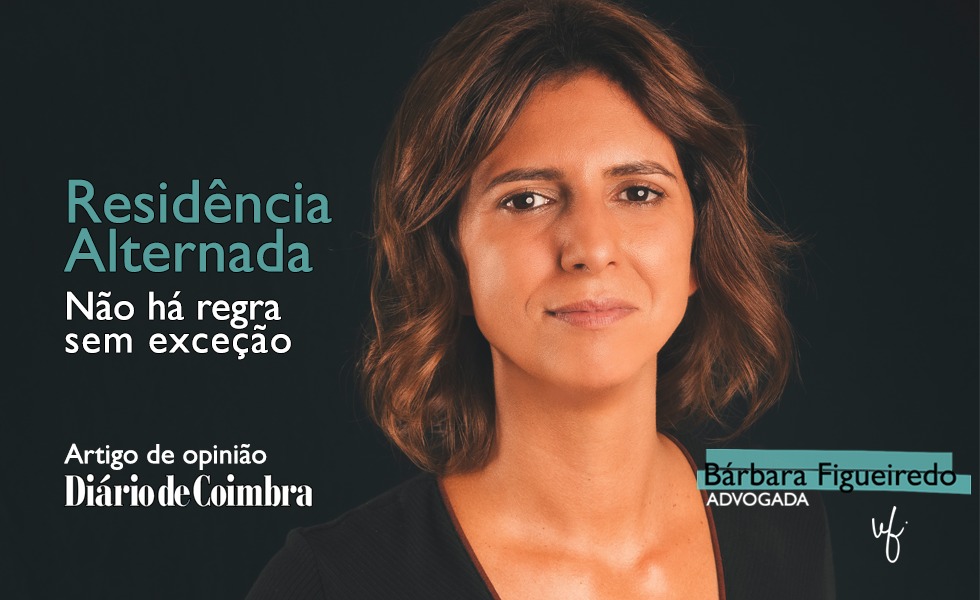Shared Custody: There’s No Rule Without Exception

February 1, 2024
Opinion piece by Bárbara Figueiredo published [in Portuguese] in the Diário de Coimbra newspaper on February 6, 2024.
In the context of a constant increase in the number of divorces and separations, shared custody has been emerging as the (increasingly) predominant regime in the regulation of parental responsibilities. This form of reorganization of family life presupposes, in addition to the joint exercise of parental responsibilities, the children’s interaction with both parents, with some balance (between 33% and 50% with each), implying the existence of two residences for the minors.
While ensuring effective equality between both parents, this regime presents itself as the one that, in most cases, best safeguards the best interests of the children, as it allows the minors to interact with both parents, thereby developing stable and deep emotional bonds with them. Furthermore, according to some studies conducted with these families, this regime may also contribute to reducing litigation between the former couple.
It is in this context that, even though the shared custody regime is not expressly enshrined in the law as the preferred regime, the legislator has already clearly recognized the importance of maintaining a close relationship with both parents. This is evident in paragraph 5 of Article 1906 of the Civil Code, which states that the court must always decide “the child’s residence and visitation rights according to their interest, taking into account all relevant circumstances, including the possible agreement of the parents and the willingness expressed by each of them to promote regular relationships between the child and the other.” Furthermore, paragraph 6 of the same legal provision provides for the possibility of the court ordering shared custody regardless of the parents’ mutual agreement in this regard.
This preference for the shared custody regime has been followed by the courts, not only due to those legislative guidelines but also as a consequence of the paradigm shift in society, with both parents increasingly involved in their children’s lives.
However, it is important not to lose sight of the fact that, despite welcoming this paradigm shift, the choice of the best regime for each case should always be determined by considering the relevant circumstances of that family. Thus, courts must resist the temptation to impose this regime almost blindly, as there are still families in which – because they did not accompany the paradigm shift before the couple’s separation – there is, in fact, no effective emotional bond between the children and one of the parents, even if not expressly acknowledged by the parent in question. In these situations, a shared custody regime may constitute a form of harm to the children, whose best interests the courts – and, incidentally, the parents – should always safeguard.


